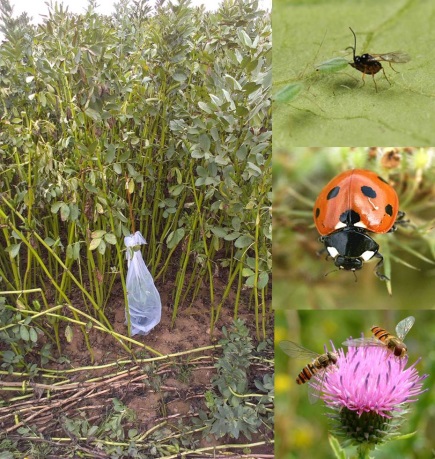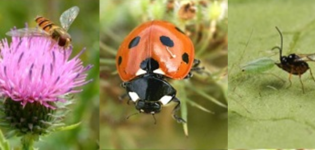Resource provision for pollinators and natural enemies at the CSC long-term platform
 Reduction in the availability and quality of plant food resources through arable intensification and habitat fragmentation has been cited as a major cause of the decline in pollinators in the UK and worldwide, and is likely to have a negative impact on the activity and abundance of natural enemy species that rely on floral resources in their adult life stages. Many pollinator and natural enemy groups disperse over large distances in search of pollen and nectar, and this might be exacerbated in intensively-managed systems with low resource diversity. Alternative management systems that lead to increases in resource availability and quality for these insects are therefore likely to promote both diversity, through niche differentiation, and fitness, by reducing the need for insect foraging over large distances. Thus, management to increase within-field and farm-scale vegetation diversity is one option to combat declines in pollinator populations and promote numbers and activity of natural enemies.
Reduction in the availability and quality of plant food resources through arable intensification and habitat fragmentation has been cited as a major cause of the decline in pollinators in the UK and worldwide, and is likely to have a negative impact on the activity and abundance of natural enemy species that rely on floral resources in their adult life stages. Many pollinator and natural enemy groups disperse over large distances in search of pollen and nectar, and this might be exacerbated in intensively-managed systems with low resource diversity. Alternative management systems that lead to increases in resource availability and quality for these insects are therefore likely to promote both diversity, through niche differentiation, and fitness, by reducing the need for insect foraging over large distances. Thus, management to increase within-field and farm-scale vegetation diversity is one option to combat declines in pollinator populations and promote numbers and activity of natural enemies.


